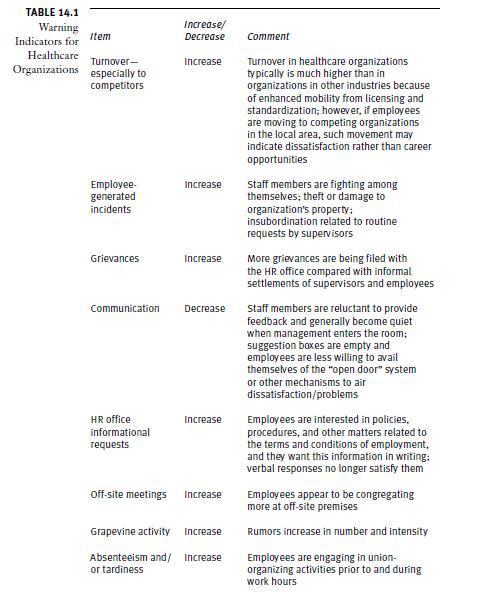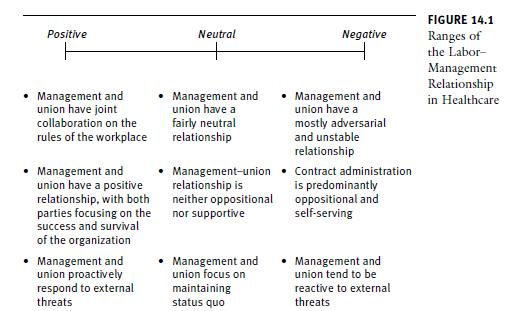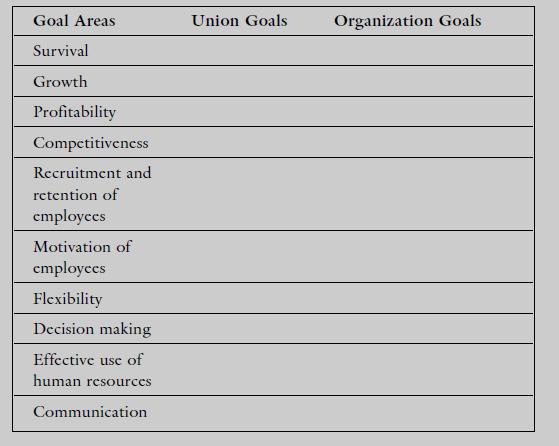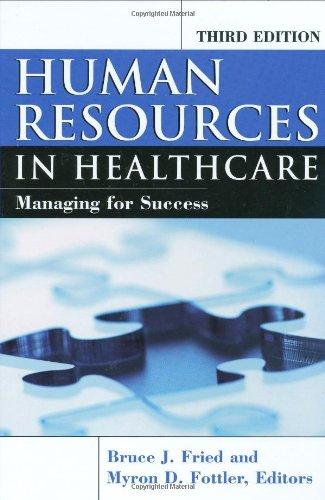This interview was conducted on May 25, 2004, with the cochair of the nurses union at a
Question:
This interview was conducted on May 25, 2004, with the cochair of the nurses’ union at a large, urban hospital in the northeast.
She has more than 20 years' experience as a nurse and definitely considers herself a nurse activist. Although the interview was conducted four years ago, the issues discussed are still relevant today.
Times have changed in nursing. The nurse activist explained that now you cannot trust management, as they will tell nurses anything just to get what they want. In her opinion, even nurses who are promoted to management cannot be trusted. “Management lies,” she said. She explained that, at the end of a recent negotiation, management and union representatives did not even shake hands. There has been a loss of respect on both sides.
It is ironic that at a time when management and nursing need to work together, a chasm of mistrust separates them. The main issues are not money, but human resources—that is, staffing, mandatory overtime, and workloads. Nurses are working harder and longer shifts; the potential for error increases in such environments.
Patient safety and quality of care are at stake. According to the nurse activist, she was eight months pregnant and coming off of an eight-hour shift when she was ordered to work an additional four hours. “We are playing a game with patient safety,” she said. “Management should be held accountable for what they are doing.” As a result, nurses are going to the bargaining table to hold management responsible for the staffing decisions that are threatening patient care.
Nurses are also taking their case to the public. The nurse activist routinely appears on local television and radio shows to gather support for nurses. The community is a key stakeholder. After all, she explained, patients make up the community, and they recall who actually “cared” for them during hospital visits: It was the nurse with the bedpan at 2:00 a.m., or it was the nurse giving comfort to the parents of a sick child. It was not management. With issues of patient safety and medication errors, nurses find it straightforward to get the community on their side in demands for staffing and work hours.
Interestingly enough, Peter Drucker, who invented the field of management study, may agree with this nurse activist. He cited management for not treating nurses as professionals who know their jobs. Although he acknowledged that management is under a lot of financial pressure, Drucker said that instead of telling nurses what to do, management should invite nurses to find solutions to the problems (Petzinger 1999).
Exercise 1
Think of a healthcare facility in your community. Consider its nursing situation. Then, answer the following questions:
1. Are the nurses treated as professionals? Why, or why not?
2. If given the opportunity, do you think these nurses are likely or unlikely to join a labor union in the future? Why, or why not?
Exercise 2
Refer to Table 14.1. Using the indicators listed in the table, conduct an audit of a hospital or a healthcare organization. Determine if the organization has experienced an increase or a decrease in any of the indicators. Then, explain the possible reasons for these increases or decreases.
Table 14.1

Exercise 3
Refer to Figure 14.1.
Using the figure as a guide, complete the table below by listing specific goals for the union and the organization.
Once the table is completed, identify the following:
• Which goals are similar?
• Which goals have the potential for conflict?
Figure 14.1


Step by Step Answer:

Human Resources In Healthcare Managing For Success
ISBN: 9781567932997
3rd Edition
Authors: Bruce Fried, Myron D. Fottler





